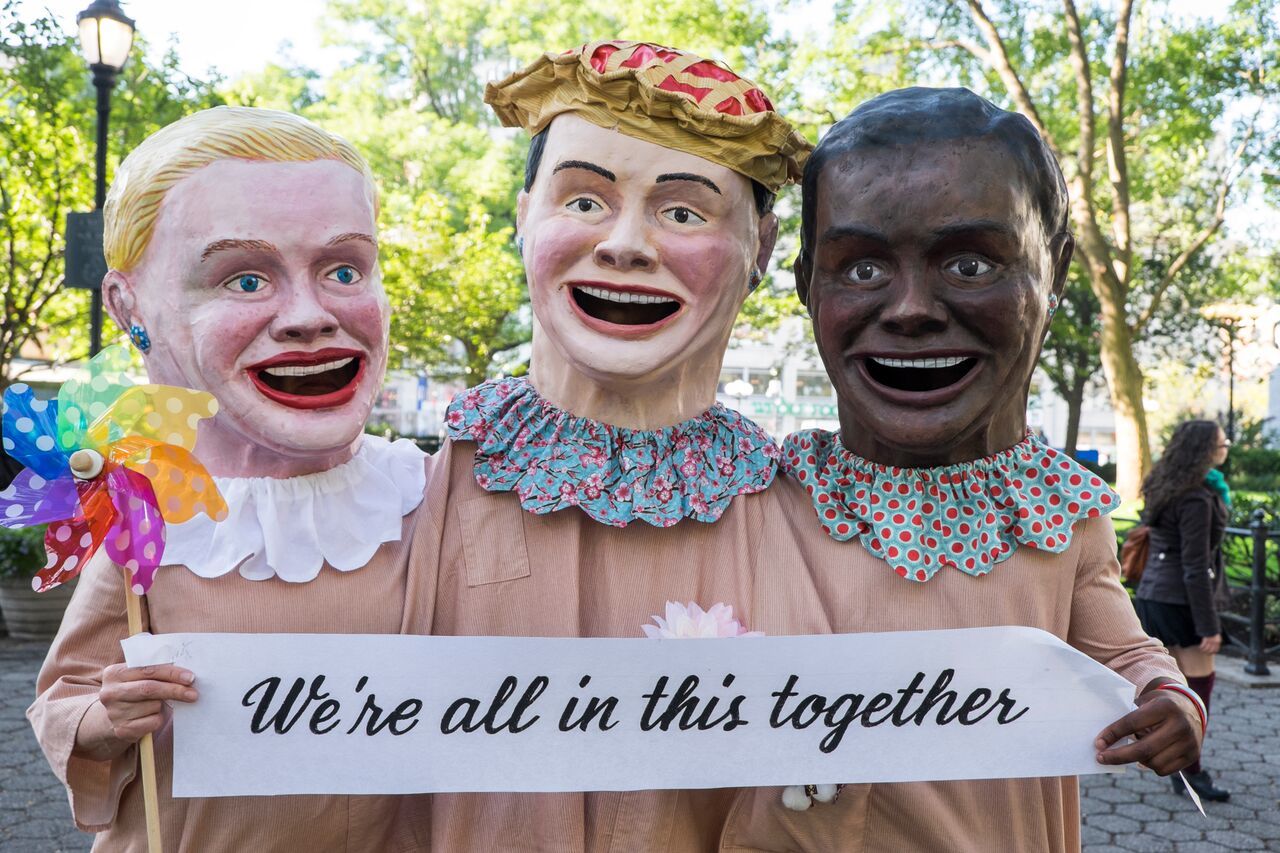Michelle Blake
Mariam of Nazareth
a poem in three voices
Angel of the Annunciation
Listen and be still.
I am the hand of God and you
are God's hand. Its will
requires the two
of us and others. Alone It cannot
reach the world. We part
the seas and calm the ram caught
in the thicket. We bring low the high hearted.
No one knows this
or cares. Your son will be a thorn
in everyone's side, saying what is
and what is not. But he's small and born
on the wrong side of the blanket, nothing
to lose, so they may listen.
We will survive, both
invisible, wraith and woman.
Walk with the ones
who know—bondsman, widow, thief.
Go to the Road of Stones.
Abide. Leave
none untold. Know
this—there are more of us in heaven
than your small world can hold.
And we are women.
Mariam Speaks to Elizabeth
Before the angel, I knew—a quickening, yes,
a fish,
a cradle of moss, sword and flame
in the garden, the road of stones.
What happened first was this—
soldiers came,
they broke our water jars, they laid us down
in the dust.
When the fathers wanted shame from us
I traded shame for peace.
But my father turned his face
to the wall, seeing only stone
on stone, his hatred
for his own kind.
What happened next cannot be made
into words—I say only
My body opened. From the angel
I learned his name.
The fathers claimed
she made it holy,
but, no,
the child made it holy.
He stirred within and spoke and I woke,
wholly awake at last.
The women knew, you, and the slaves
touching my robes as I passed,
sweeping a path for me in the dust.
It is always so—
their law eats them from within. Only those outside the law
can weep and know
Elizabeth Speaks to Mariam
My child talks to me night
and day, in dreams and in waking,
of your child's nights
in the desert.
He will abandon God. He will make
faith with Satan, choosing earth
over heaven. God will rain down
blessings. From this your son will learn always
to abandon his first desire. God will bestow
a second choice your son
must take.
He will say to all, each one,
Follow me. But none can. Only you.
He carries his death, a day
you cannot do or undo.
You have to watch. All these things
will pass away. What remains?
Not the word lord or king
and not the law. My son claims
that we remain. Stories. What we have made.
What we have made remains
|
|
 |
 |
| AUTHOR BIO |
| Michelle Blake has published poetry and essays in Tin House, The New York Times,
Ploughshares, Southern Review, Solstice Literary Magazine, MORE Magazine, Ladies Home Journal, Parents and others. Her essay “A Fable for Our Times” won the Solstice Nonfiction Award for 2015. She has also published three critically acclaimed novels—The Tentmaker, Earth Has No Sorrow and The Book of Light (Putnam Penguin). Her chapbook of poems, Into the Wide and Startling World, was awarded publication in the New Women’s Voices
competition in 2012 (Finishing Line Press). In 2014, her collaborative project with photo-montage artist Fran Forman, Escape Artist, was published by Schiffer. In 2017 she was a Resident Writer at the Siena Arts Institute, and she has twice received residency grants at Vermont Studio Center. In addition, she has taught writing at Goddard College, Stanford University and Tufts University and directed both the Goddard MFA and Warren Wilson MFA
programs. See her website at www.michelleblakewriter.com
|
|
| POETRY CONTRIBUTORS |
 Michelle Blake Michelle Blake
 Jane Blanchard Jane Blanchard
 Barbara Lydecker Crane Barbara Lydecker Crane
 Lee Ann Dalton Lee Ann Dalton
 Susan de Sola Susan de Sola
 Michele Leavitt Michele Leavitt
 Lynn Levin Lynn Levin
 Marjorie Maddox Marjorie Maddox
 Carolyn Martin Carolyn Martin
 Bernadette McBride Bernadette McBride
 Susan McLean Susan McLean
 Kamilah Aisha Moon (Featured Poet) Kamilah Aisha Moon (Featured Poet)
 Sally Nacker Sally Nacker
 Patrice Nolan Patrice Nolan
 Katy Rawdon Katy Rawdon
 Leslie Schultz Leslie Schultz
 Myrna Stone Myrna Stone
 Gail Thomas Gail Thomas
 Nell Wilson Nell Wilson
|
|
|
 |
|
 |
|
|
|
 |
| Megan Marlatt:Looking like large puppet heads, it was "anima", the root of "animation", that led me to the making of the big heads, (or "capgrossos" as they are called in Catalonia where I learned the craft.) Anima is the soul or what breathes life into a being and to animate an inanimate object, an artist must insert a little soul into it. However to bring attention to what is invisible, (the soul), I chose to mold its opposite in solid form: the persona, the ego, the big head, the mask. Nearly every culture across the globe has masks. They allow performers to climb into the skin of another being and witness the other's world from behind their eyes. While doing so, the mask erases all clues of the performer's age, gender, species or race. In this regard, I find them to be the most transformative and empathic of all human artifacts.
|
|
|
|
|
|
 |
|
 |
|
|
|
|
